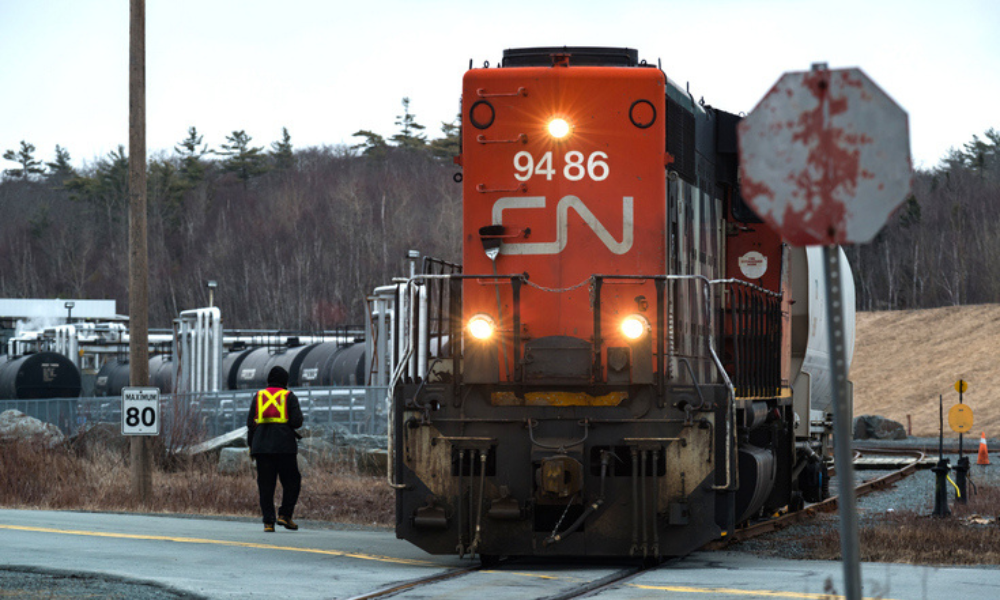CN and CPKC face binding arbitration

The Canadian government has intervened to bring an end to a nationwide rail strike, a move that will impact businesses, workers, and communities across the country.
CN rail workers are currently heading back to work, while the CPKC stoppage continues, pending an order from the Canada Industrial Relations Board, the union said.
On Thursday, Labour Minister Steve MacKinnon invoked Section 107 of the Canada Labour Code to impose binding arbitration on the dispute between Canadian National (CN), Canadian Pacific Kansas City (CPKC), and the Teamsters union, which represents engineers, conductors, and yard workers.
The news comes after CN and CPKC on Thursday locked out 9,300 workers after the groups failed to come to an agreement by midnight. The action caused a complete halt of freight traffic for the first time in Canadian history, including commuter trains — CN and CPKC move roughly $1 billion worth of goods each day, and the disruption threatened to further strain supply chains already impacted by months of negotiations.
Impact of rail strike on Canadian supply chains
MacKinnon stated that extending the terms of the current collective agreements until new agreements are reached would help stabilize the situation. "Workers, farmers, commuters, and businesses rely on Canada's railways every day, and will continue to do so. It is the government's duty and responsibility to ensure industrial peace in this critically vital sector," MacKinnon said in a press release.
Canadian Manufacturers and Exporters welcomed the government's intervention. Dennis Darby, president and CEO of the organization, expressed relief at the decision, stating in a press release: "A prolonged stoppage would have imposed enormous costs on Canadian businesses and workers."
Darby said that the process of winding down operations, combined with the shutdown yesterday, had already caused significant supply chain disruptions, with challenges that could take days or even weeks to resolve.
This move by the federal government follows months of stalled negotiations that culminated in a lockout by CN and CPKC. The companies had failed to reach a new contract with the union by the midnight deadline on Thursday, leading to the shutdown of rail services.
The Canada Industrial Relations Board (CIRB) will now oversee the resolution of the dispute through binding arbitration, a step designed to avoid further economic damage.
"Canadians can be assured that their government will not allow them to suffer when parties do not fulfill their responsibility, especially where their livelihoods, worker safety, and communities are at stake," MacKinnon said.




